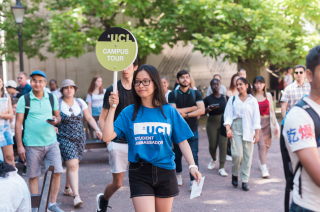Politics and International Relations BSc
Degree Structure
In each year of your degree you will take a number of individual modules, normally valued at 15 or 30 credits, adding up to a total of 120 credits for the year. Modules are assessed in the academic year in which they are taken. The balance of compulsory and optional modules varies from programme to programme and year to year. A 30-credit module is considered equivalent to 15 credits in the European Credit Transfer System (ECTS).
The three-year curriculum delivers both structured training in political science and the opportunity for you to focus on the questions that interest you most. The first year begins by investigating some of the great political challenges in the world today. You will also explore some of the main subfields of politics, including international relations, comparative politics, public policy and political philosophy. During the first year, you will also develop your writing skills and learn about the use and misuse of data in politics.
The second year deepens your substantive knowledge. You will choose modules from a wide variety of options offered by the department. You will also delve deeply into the main methods in political science, learning the skills to do a wide array of research. Additionally, you will engage with practitioners from the world of politics and policy.
Finally, in the third year, you are free to concentrate on the particular subfields, issues, and methods that interest you most, choosing several options from the full array of intermediate (level 5) and advanced (level 6) undergraduate modules offered by the department (and, subject to approval, offered by external departments).
A limited number of study abroad placements may be available (subject to first-year grades and a successful application in their second year) for students who wish to undertake a year abroad. If successful securing a study placement, students will undertake the year abroad in their third year after transferring to the four-year programme at the end of the second year.
Upon successful completion of 360 credits, you will be awarded a BSc (Hons) in Politics and International Relations.
Degree benefits
Learn from world-leading experts in politics and international relations in the UCL Department of Political Science and School of Public Policy, who will teach your classes.
Acquire the knowledge and know-how you need to analyse the major political problems of our time and evaluate how we should respond to them.
Link your studies with real-world political developments, both through coursework that engages with current events and by learning from eminent practitioners at our flagship Policy & Practice Seminar Series.
Develop a portfolio of skills in how to undertake research; analyse data; argue persuasively and communicate effectively, valued by employers in both the public and private sectors.
Careers
Our goal is to produce graduates who can undertake independent research on complex questions, collecting and analysing data and other forms of evidence; who can express complicated ideas clearly and communicate them effectively in speech and writing and who can construct and defend reasoned arguments about politics and public policy.
The Politics and International Relations BSc will equip you with a range of skills. Your training in independent research, data analysis, writing, and logical reasoning, alongside the breadth of knowledge you will acquire, will be valued by employers across the public and private sectors.
Alumni of the UCL Department of Political Science have gone on to careers working for the civil service, members of parliament, domestic and international NGOs, management consultancies and other private sector organisations, news organisations and think-tanks, as well as undertaking postgraduate study.
UCL is committed to helping you get the best start after graduation. Read more about how UCL Careers and UCL Innovation and Enterprise can help you find employment or learn about entrepreneurship.
Fees and Funding
The fees indicated are for undergraduate entry in the 2024/25 academic year. The UK fees shown are for the first year of the programme at UCL only. Fees for future years may be subject to an inflationary increase. The Overseas fees shown are the fees that will be charged to 2024/25 entrants for each year of study on the programme, unless otherwise indicated below.
- UK students
- £9,250 (2024/25)
- Overseas students
£31,100 (2024/25)
Full details of UCL's tuition fees, tuition fee policy and potential increases to fees can be found on the UCL Students website.
Additional costs
A guide including rough estimates for these and other living expenses is included on the UCL Fees and funding pages. If you are concerned by potential additional costs for books, equipment, etc., please get in touch with the relevant departmental contact (details given on this page).
Funding
Various funding options are available, including student loans, scholarships and bursaries. UK students whose household income falls below a certain level may also be eligible for a non-repayable bursary or for certain scholarships. Please see the Fees and funding pages for more details.
Departmental scholarships
Funding opportunities relevant to the department may appear in this section when they are available. Please check carefully or confirm with the programme contact to ensure they apply to this degree programme.
The Scholarships and Funding website lists scholarships and funding schemes available to UCL students. These may be open to all students, or restricted to specific nationalities, regions or academic department.
Application and next steps
Your application
We are looking for applicants who have a passion for thinking critically about the world in which we live. We value applicants who express themselves clearly and without jargon and who have a proven track record of academic success and engagement in their community.
How to apply
Application for admission should be made through UCAS (the Universities and Colleges Admissions Service). Applicants currently at school or college will be provided with advice on the process; however, applicants who have left school or who are based outside the United Kingdom may obtain information directly from UCAS.
 Close
Close



 Congratulations to Politics and International Relation student, Sanjana Balakrishnan, who has been awarded the
Congratulations to Politics and International Relation student, Sanjana Balakrishnan, who has been awarded the 

